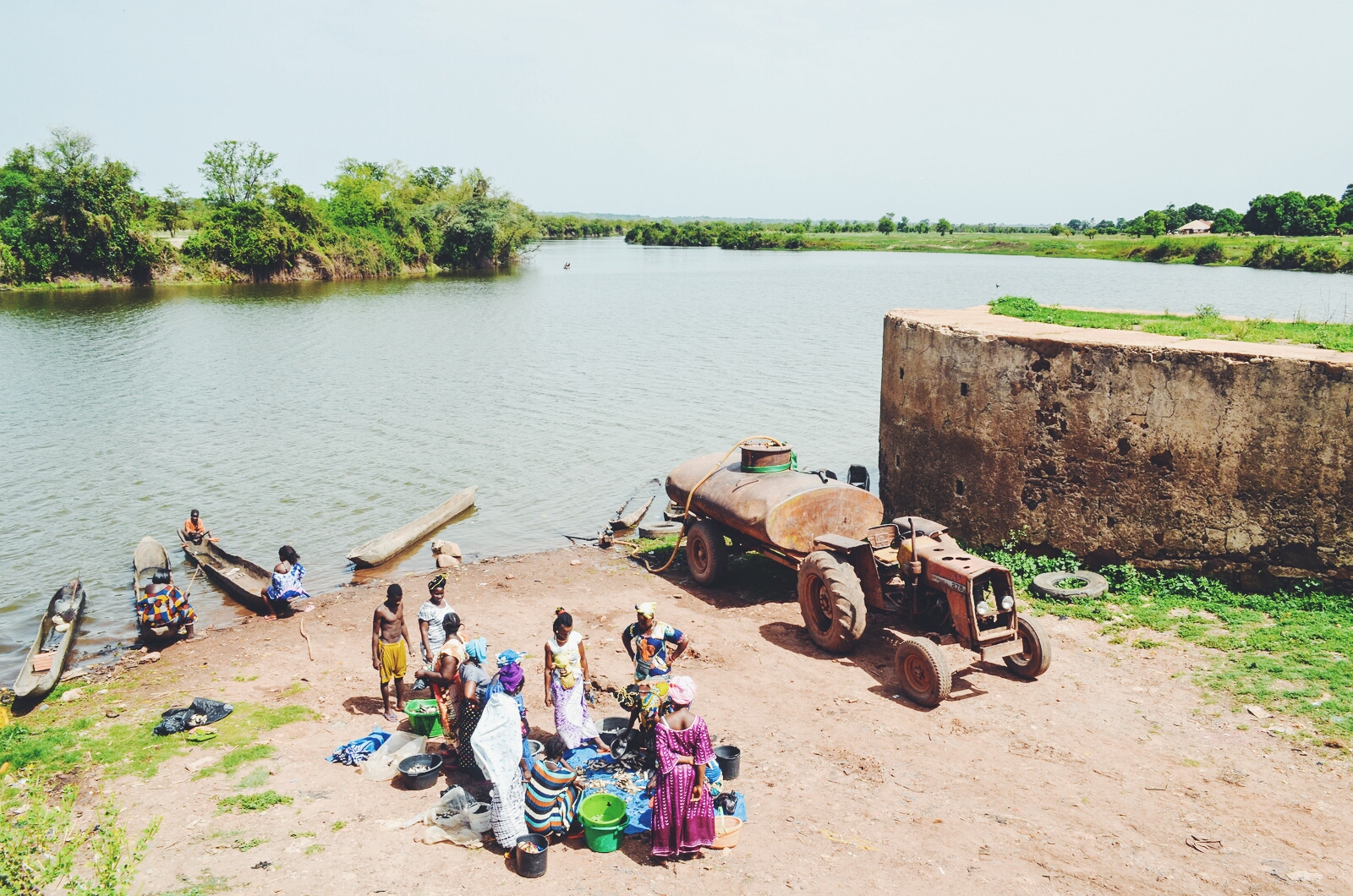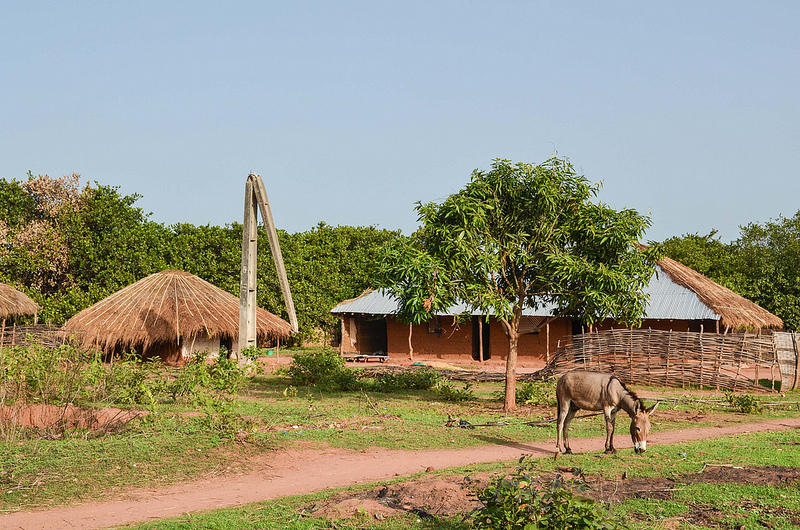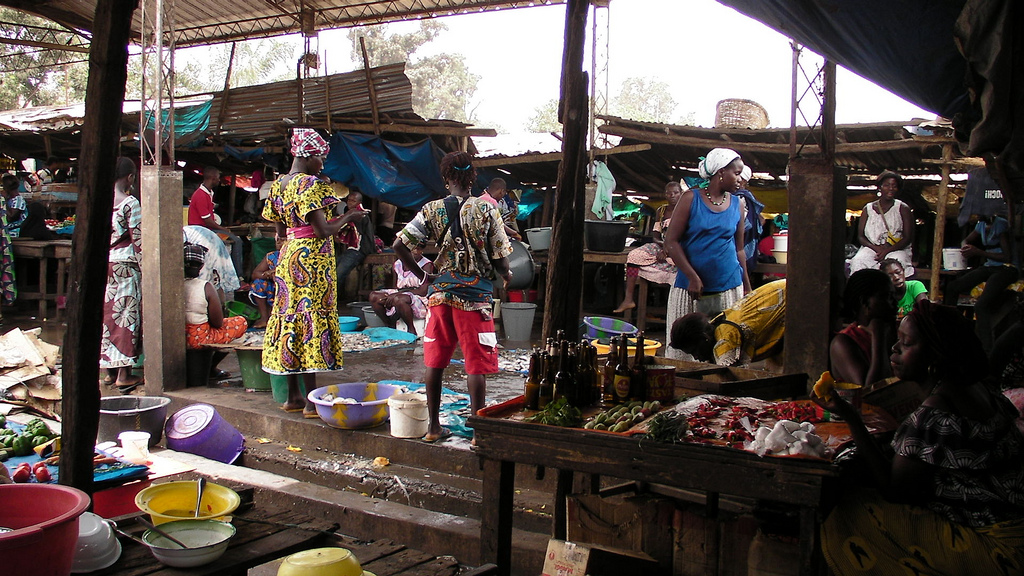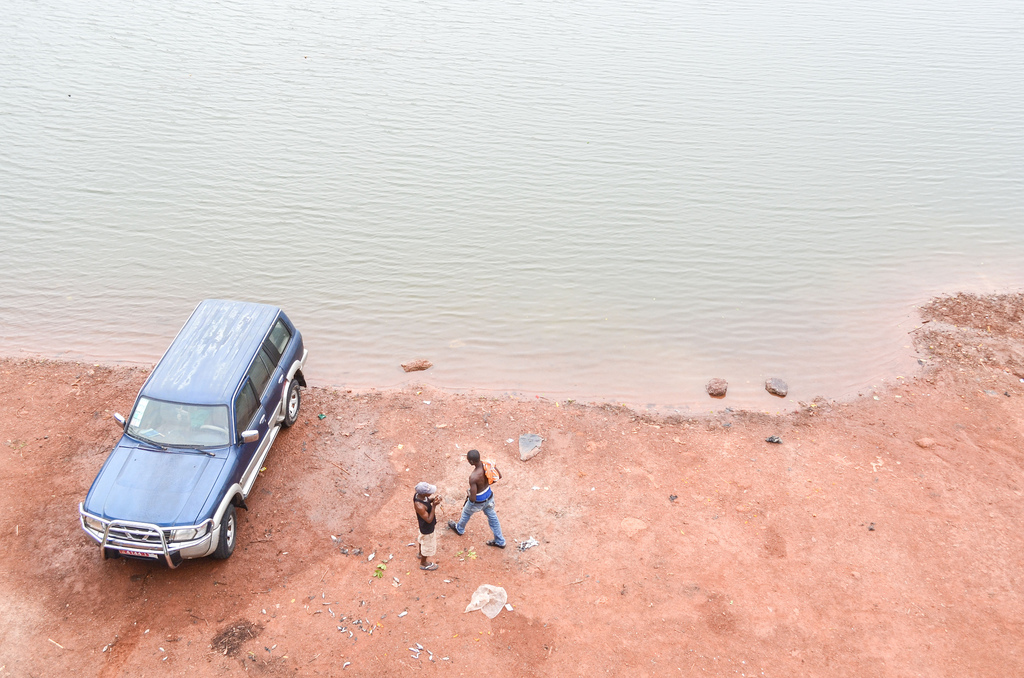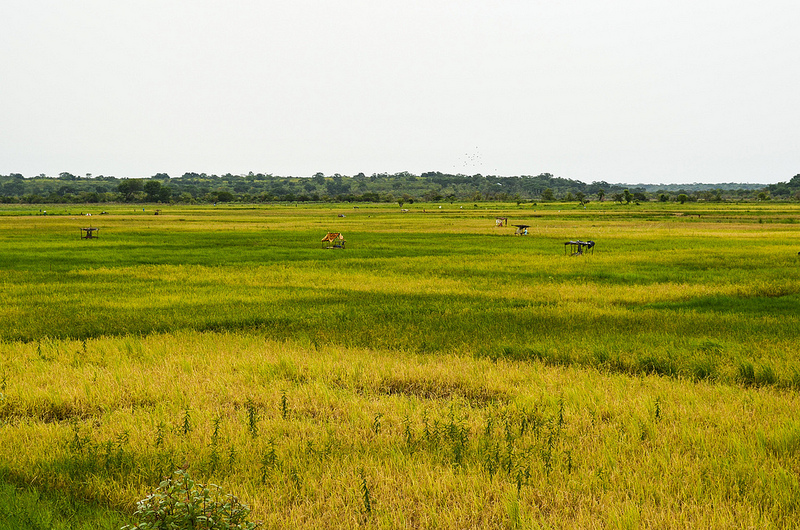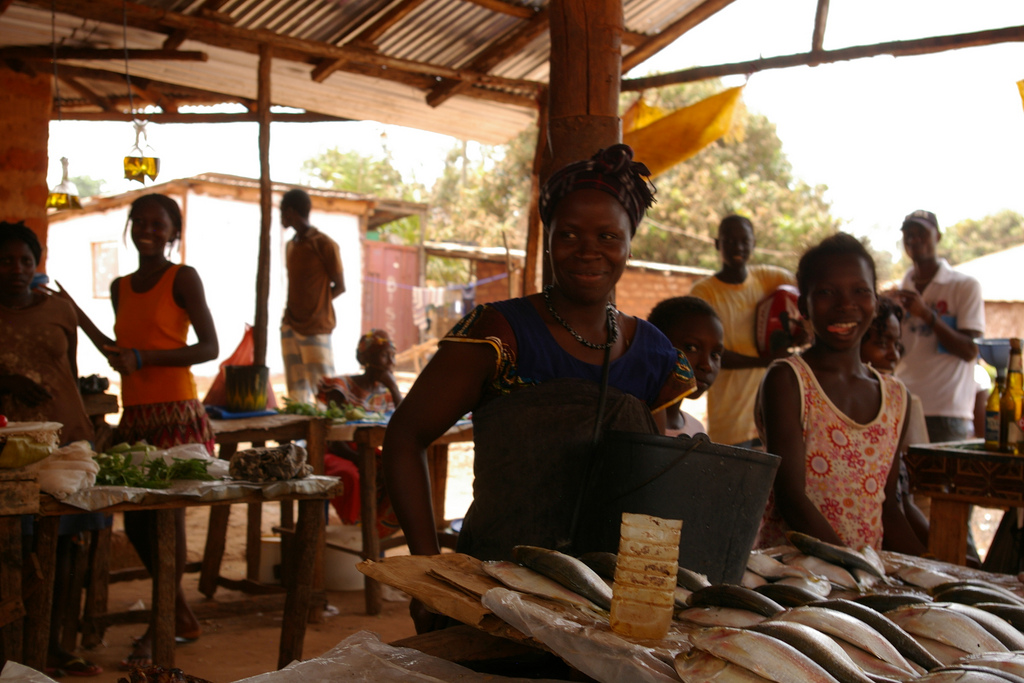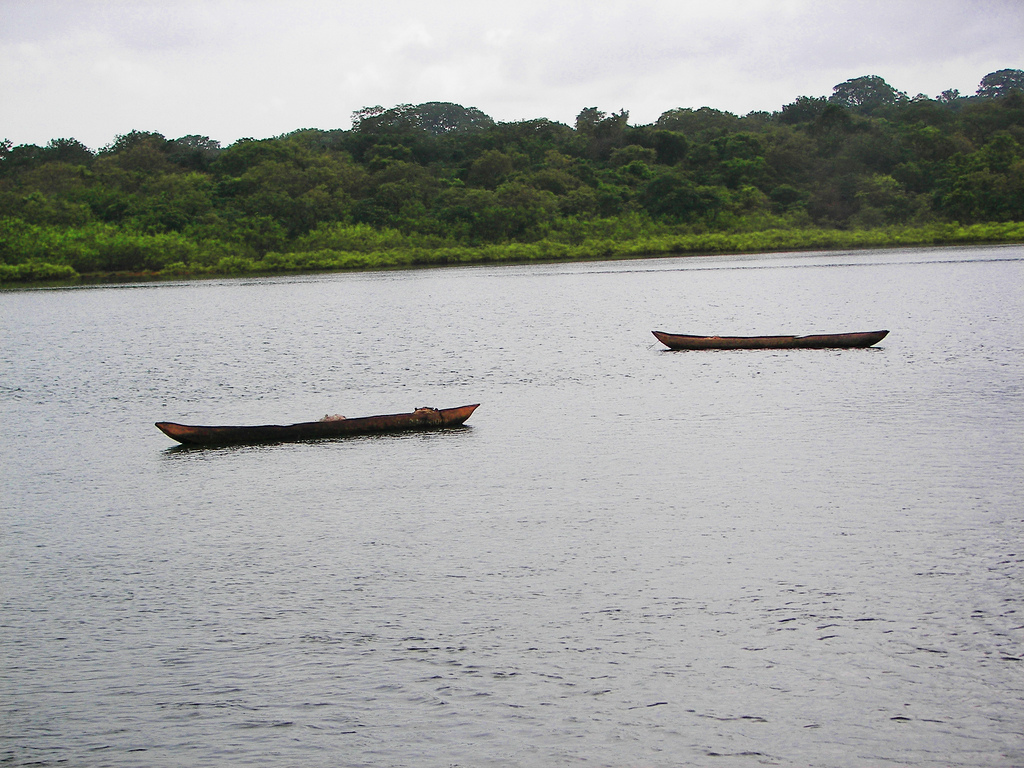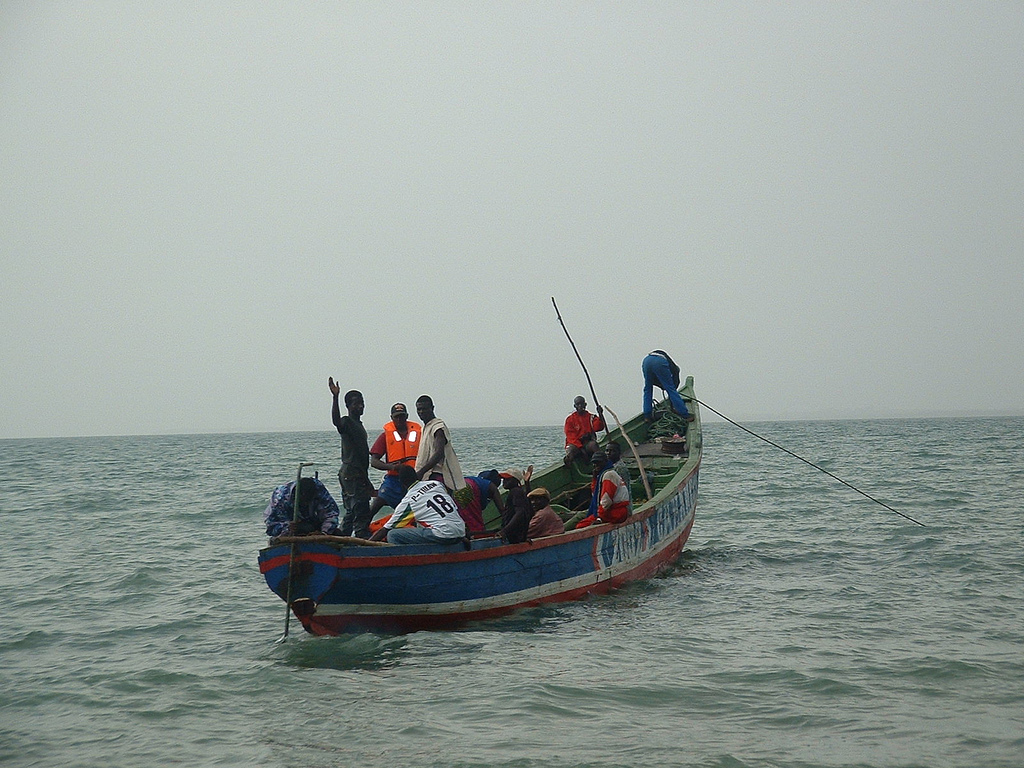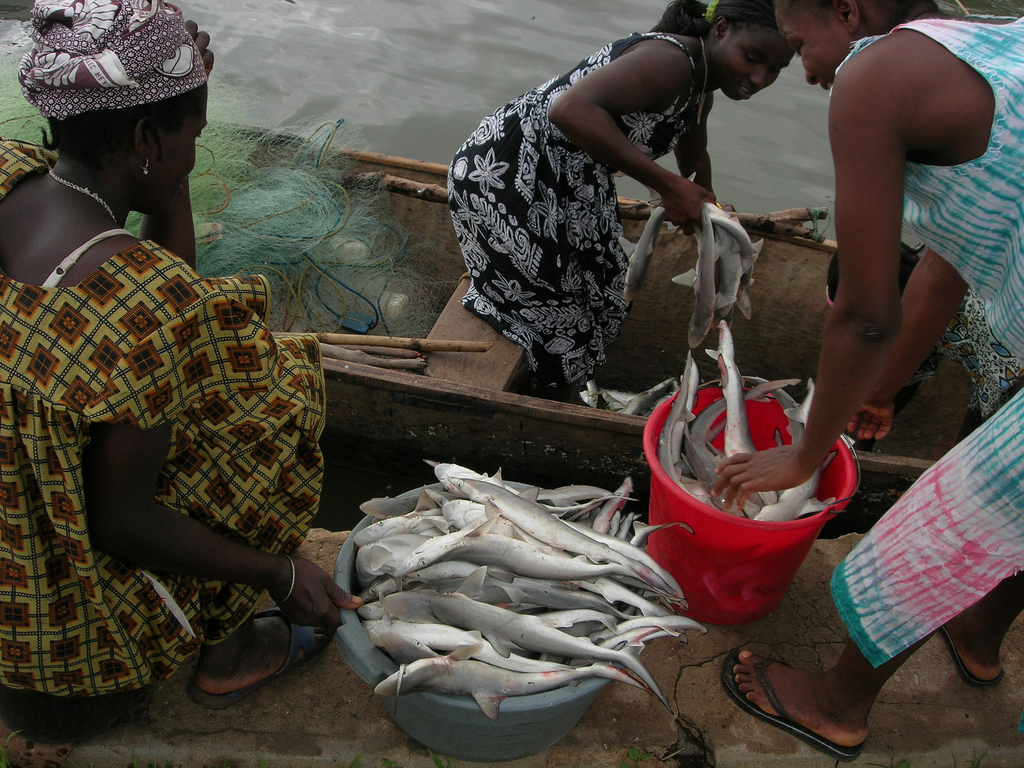Guinea-Bissau, October 1990, I don’t remember which day. But I remember how it was that morning when I woke up. Hot, very hot, the way it is in the tropics, damp and cloying, with a low sky of dark clouds, like a lid. I got out of my room, with just a bathrobe on, and ran to the nearest mango tree – the hotel I was staying at was very simple, just a handful of bungalows of two rooms each, set in a large, unkempt garden, no flowers, a lot of mud. But so many mangoes, greenish yellow, with a juicy, golden flesh, the perfect breakfast. I went into the bathroom to carve out my mango with a multi-bladed Swiss knife I always carried with me (back then you could taken them aboard planes). The sweet juice dripped all over the sink. I reflected how in Bissau, there are mango trees everywhere, heavy with fruit; all one has to do is look up and grab one, they’re free – a little like living in paradise.
But Guinea-Bissau back then (and even today) is no paradise. It is one of the poorest countries on earth, more than two thirds of the population lives below the poverty line on less than two dollars a day. If Guinea-Bissau threatens these days to become a narco-state, this is no surprise. Guess what, even when I was there, most people, some 80 percent, earned whatever living they could scrape from agriculture, mostly rice (to feed their families) and cashew and ground nuts (for export).
I knew all about this, before coming, I had done my “due diligence” to prepare myself for my project evaluation mission. Little did I know that in a few hours I would live through the most extraordinary and unforgettable experience in my life as FAO Evaluation Officer. The project was ending, the question I had to answer was, should it continue, a standard question at the end of a project cycle. I had read about the country’s problems after it became independent from Portugal, how the Portuguese Colonial War had led to a rapid exodus of the Portuguese civilian and military authorities, and like any war, had wrought considerable damage to the country’s economic and social infrastructure. With continuing political instability, the standard of living had collapsed and while Guinea Bissau had been a net exporter of rice in colonial times, now it was a net importer. And for years there had been no vegetables or fruit (except for mangoes) in the capital – a small town of some 150,000 people (more than double that number today). That had changed with the project I was meant to evaluate. A horticulture project, started a couple of years before, it was meant to provide the town with vegetables. It was a very small project, less than one hundred thousand dollars of expenses in two years. Peanuts. Compared to the big problems the country faced, what was the point of it? How could it help? Was another extension really needed? But I was beginning to revise my opinion.
…………………………………………………………………………………………………………………. More: OIL SPILLS: A DOUBLE-STANDARD WORLD article by Hannah Fisher-Lauder DIARY OF A UN OFFICIAL: MISSION #1 – MAURITANIA article by Claude Forthomme ………………………………………………………………………………………………………………….The night before, a few hours after I had flown in from Rome, the project manager had taken me to his favorite restaurant in the heart of old Bissau, or whatever was left of it, a small place on the first floor of a rickety house with Portuguese charm. I had been heartened. It was hard to imagine you were in one of the more desolate places in Africa. The cotton cloth draped on an old wooden table was lined with lace, the crockery was sparkling clean and the food, a typical Portuguese stew, came with a fresh salad and tomatoes. I was scared of eating raw vegetables in a developing country (so many bugs!), but the project manager encouraged me, showing me he wasn’t afraid. “This is fresh food!” he exclaimed, guzzling it down, “so much better than the canned vegetables we used to have when I first arrived here.” He was a big man in his fifties with a quick smile and a warm light in his eyes.
You could see he enjoyed himself even though he had a bad leg that made it hard for him to jump in and out of the project’s land rover. He was a Belgian who had emigrated to southern France when he was 19 during World War II and, after a bout with paralysis that had blocked one of his legs, he had bravely started his own apple orchard to survive. After the war, apple production had become a thriving business and now he spent his spare time traveling three times a year to Guinea-Bissau to help out local farmers. He had trained officers of the Ministry of Agriculture in the art of teaching farmers the rudiments of horticulture and he monitored the purchase of quality seeds from the Netherlands, an essential input to ensure success. Within two years, Bissau was flooded with tomatoes, cabbages, carrots and all manner of vegetables. “The women make tons of money, you’ll see tomorrow when we go and visit,” he told me with glee. “They make more money than their husbands who stick to rice production, they even make more money than the director at the Ministry of Agriculture!”
“Why do the men stick to rice production?” I asked.
“Why indeed…” He frowned. “It’s a cultural fact. Traditionally, men have always grown rice, it’s a tough job, preparing the field. You should see them swinging their big hoes. A macho thing.”
“And the women?”
“Like everywhere in Africa, they sell. They are in charge of bringing the stuff to market. But in this case, they decided to take on the production themselves, and they have an unexpected advantage.” He chuckled.
“That is?”
“They’re clever, they used the land their husbands abandoned after the rice crop had been harvested. Not a lot of the land, just a little of it, so the husbands wouldn’t mind. But it was enough for them to make money.”
The next day I saw what he meant. That’s when something incredible happened. For the first time in my life as an evaluation officer, when I reached the field and joined a group of farmers, I was assaulted by them. Assaulted with kisses. Here they were, all around me, the project’s beneficiaries, some young, some old, most middle-aged, all women, sixty of them, with only one lone man among them (he didn’t kiss me, he stayed meekly away from the group). They thanked me and there were tears in their eyes, real tears! They grabbed my hands, they begged me to continue the project, they told me they needed good seeds for the next season, they had to continue to produce vegetables, they just had to, there was the demand and they needed the money for their kids, to feed them, clothe them, send them to school. Couldn’t I see that? Couldn’t I understand them?
I could. Something like this had never happened to me before and I felt committed. The rest of my mission was spent fighting with all kinds of authorities, local authorities who couldn’t quite see the point (a woman’s problem and then, who likes to eat vegetables?) and the donors back in Rome who wondered why so little money appeared to do so much. Donors much prefer to spend millions of dollars, it reassures them. Eventually, I got my way and the project was extended another two years and extended once again. Nowadays, there are still projects in Guinea-Bissau to sustain horticulture but they are financed by other donors, like the Danes’ aid (Danida) or the Red Cross, and not by FAO which as I have explained elsewhere (see previous articles on FAO) has undergone drastic changes in its role in developing countries; now FAO is largely limited to emergency interventions and policy support. A shame. I still think people working for FAO have good services to offer in hands-on development aid.
Admittedly, projects can misfire or go in unexpected directions. Soon after I was back from Guinea-Bissau, I discovered one of the worst cases of “misdirection”, surely, in this case, a euphemistic way to phrase it. José Castilla, a long-time colleague of mine in the Evaluation Service, a Spaniard with a rich and varied experience in development, told me about it. “I’m off to Benin tomorrow and I don’t know what will happen to me,” he said, looking thoroughly upset. “You have no idea.”
“What do you mean?”
” It’s a fisheries project that went all wrong. Tragic. Whoever thought up this project is an idiot.”
“Why?”
“Consider this. To help a bunch of fishermen, they were provided with brand new engines for their boats to power them up and enable them to go fishing in the Atlantic. But no consideration was given to the weight of these engines. You can’t just slap them on the traditional pirogues without destabilizing them.”
“You mean they overturned?”
He nodded, gloomy. “Traditional pirogues are built in such a way that they can overcome the big ocean breakers that are natural in that part of the world. Weighed down by the big, new engines, they sink like stones.”
“And?” I was beginning to see why he was worried.
“And a few of them met their death. And as if this wasn’t enough, they tried again. With the same engines. And a few more met their death. I don’t know who is more stupid or more criminal.”
“The project manager…”
“Of course, the project manager and the people who dreamt up those engines. These guys always think they are God’s gift to Mankind; that technology will solve everything. And they impress their catastrophic philosophy on the poor project victims. Talk about project beneficiaries, ha! I’m coming to a village where most of the men have died. I’m going to be lynched.” And he looked despondent.
I tried to pick him up offering him a coffee and my Guinea-Bissau story but it didn’t seem to change his mood.
When he returned three weeks later, I asked him how it went. I expected him to be devastated, instead he looked his old cheery self.
“You were right, Claude,” he said. “Women make the difference!”
“What do you mean? What happened?”
“When I got there and walked into the new fish processing area and cold storage room the project had built, I was met by the most amazing spectacle. The women, all the fishermen’s widows, had taken over and transformed the building into a bar and shop, using the freezers to store the goods. The whole village and people from other villages around were all clients. And these women were making piles of money and were perfectly happy. They met me with open arms, offered me to drink. You have never seen a more grateful bunch of project beneficiaries!”
“But their husbands…” I muttered.
“Ah? Yes, no one ever mentioned them. Let me tell you, that was one merry lot, I suspect none really regretted their hubby’s disappearance. Now they had money, their children were going to school, they could buy themselves jewelry…What more could they want?”
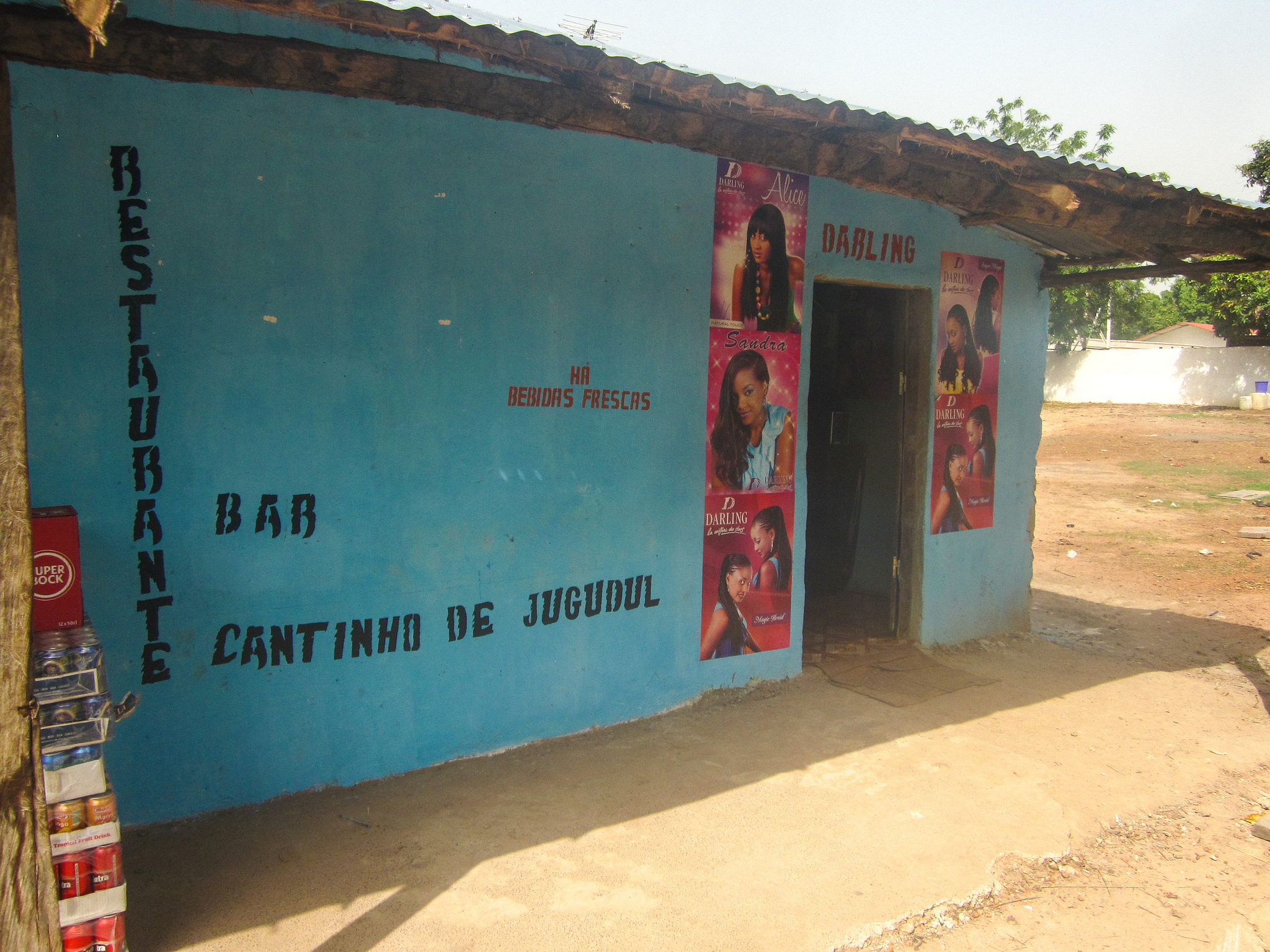
I stared at him and could see he was trying hard not to burst out laughing. “You know,” he said on a confidential tone,”the problem is that we always go into development activities without asking the people what they really want, or rather, not asking the right people what they want. If the damn project designers had asked the women instead of the men, they would have gotten the right response and nobody would have died in the process.” He stopped and looked at me pensively. “You know, development is a process of disruption, really more like a revolution. So expect some deaths to occur…”
Maybe. I’m happy for those women but I still regret it had to go this way. What worries me though, is that this sort of lesson, so subtle and so complex, is hard to transmit to future aid workers. Perhaps the only true lesson we can draw from all this is: put your ear to the ground, listen and don’t jump to conclusions!
Post-scriptum: I wanted to contact José Castilla to find out more about his experience but unfortuntely he has passed away. So what you read here is what I remember to the best of my ability. Consider this piece in memoriam of a brave man who had an extraordinary understanding of the intricacies and issues in development aid and, more profoundly, in human nature. I am sure he would agree with the conclusion of this article, and perhaps use a more flowery language than mine. Those who have known him will understand what I mean. In his development work, he often took after Don Quichotte, ready to do battle against injustice and ignorance, even when he was aware that he might be on the losing end of arguments with donors. But he never failed to try and try again.


